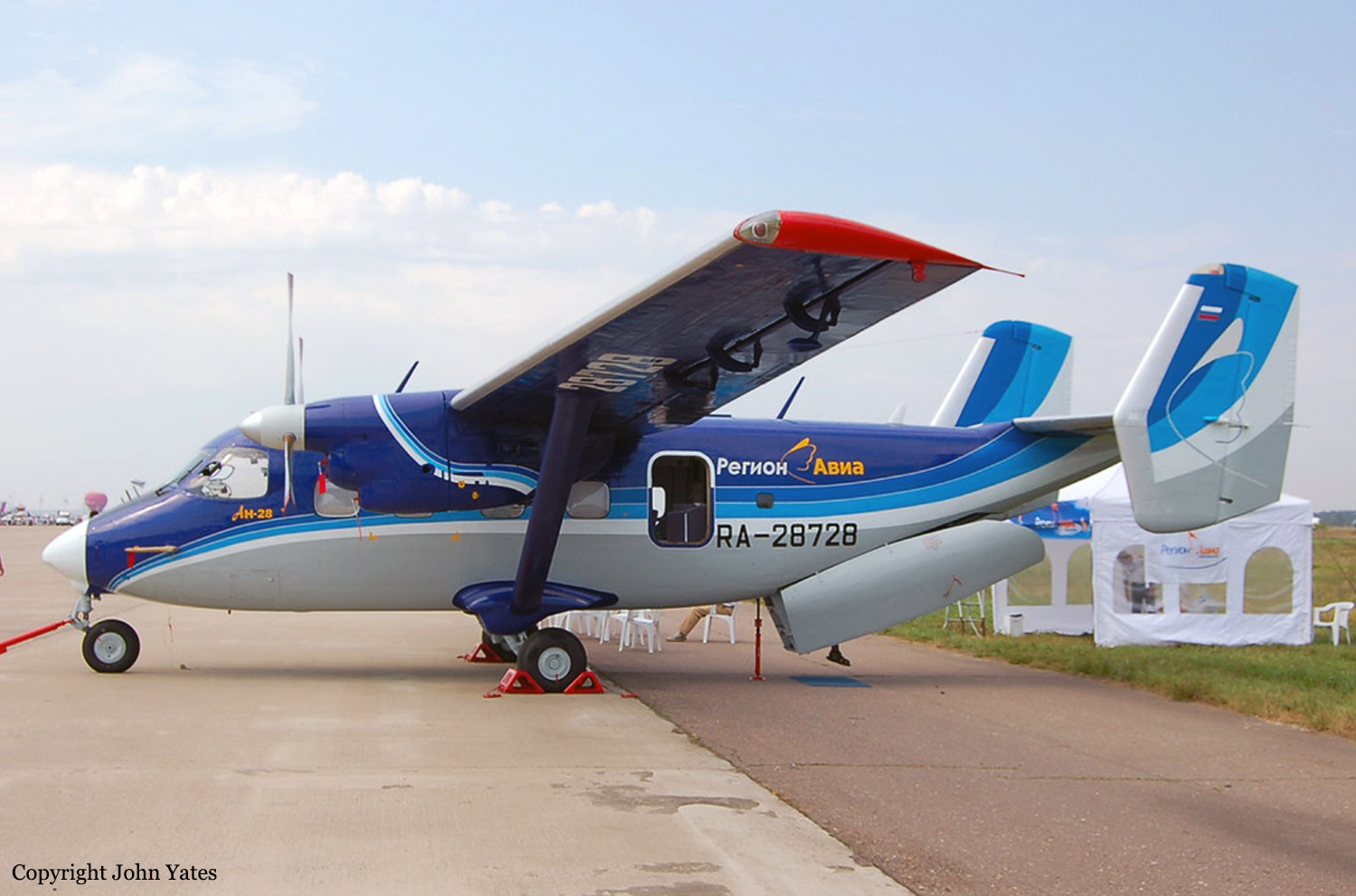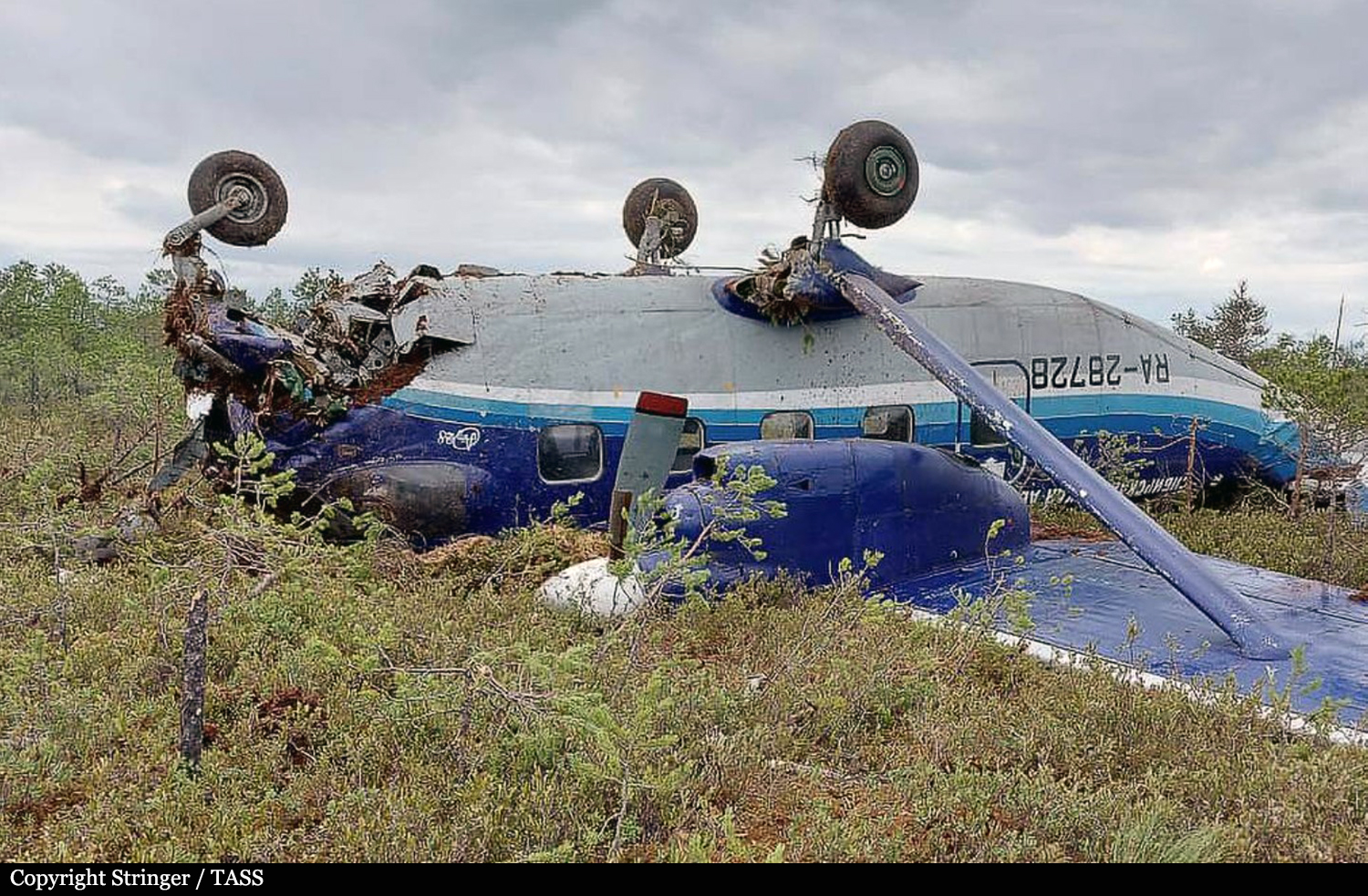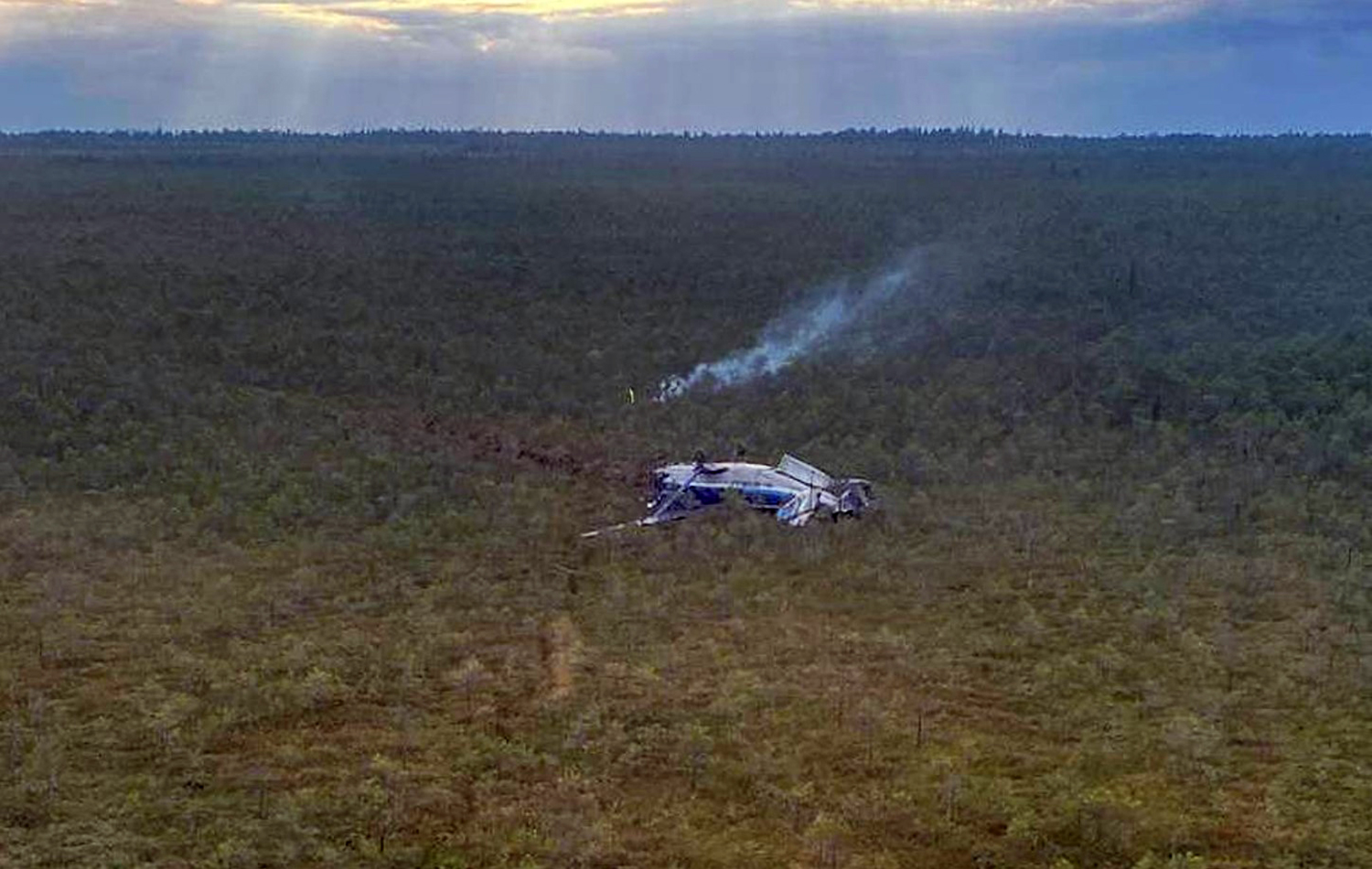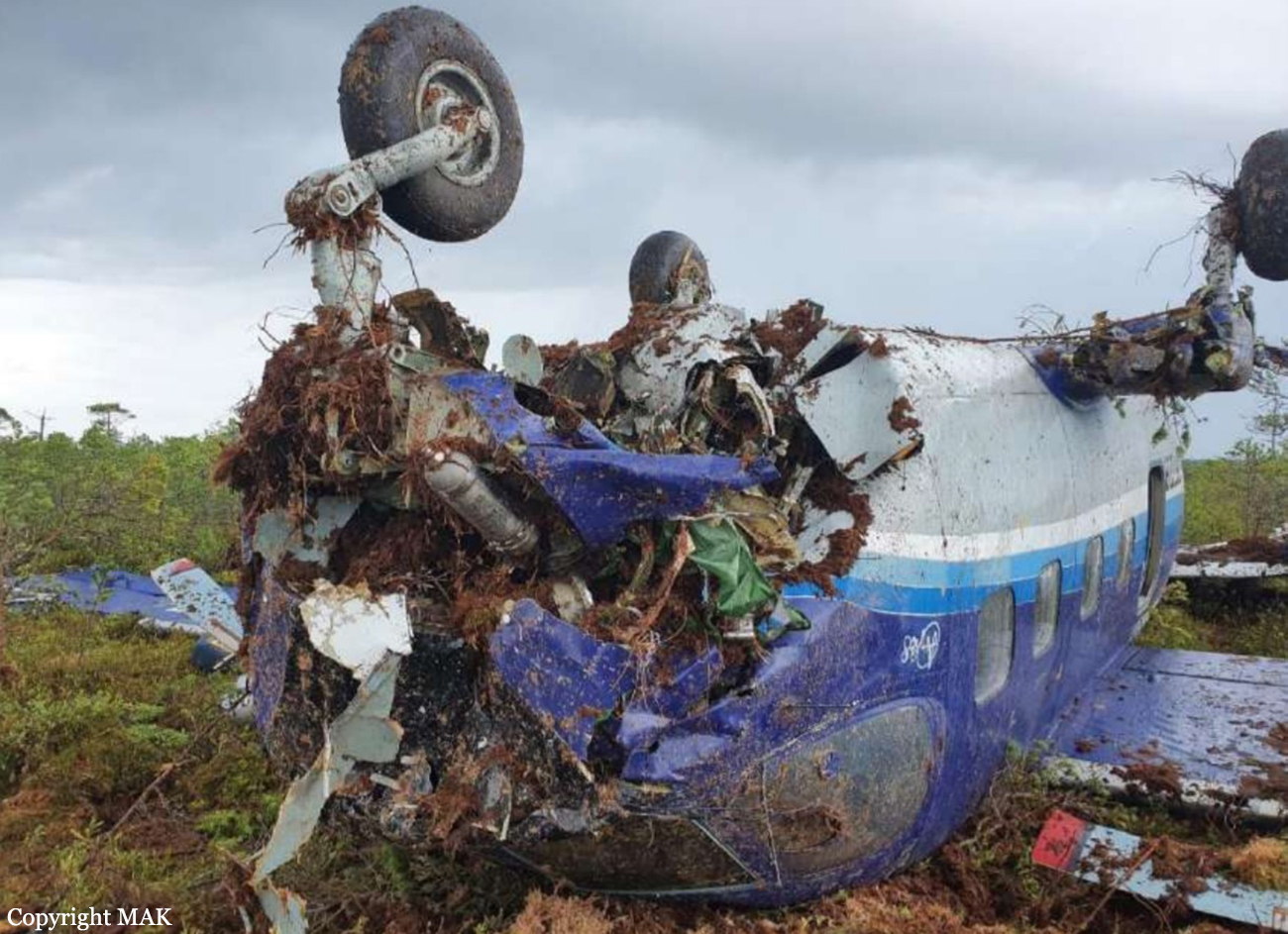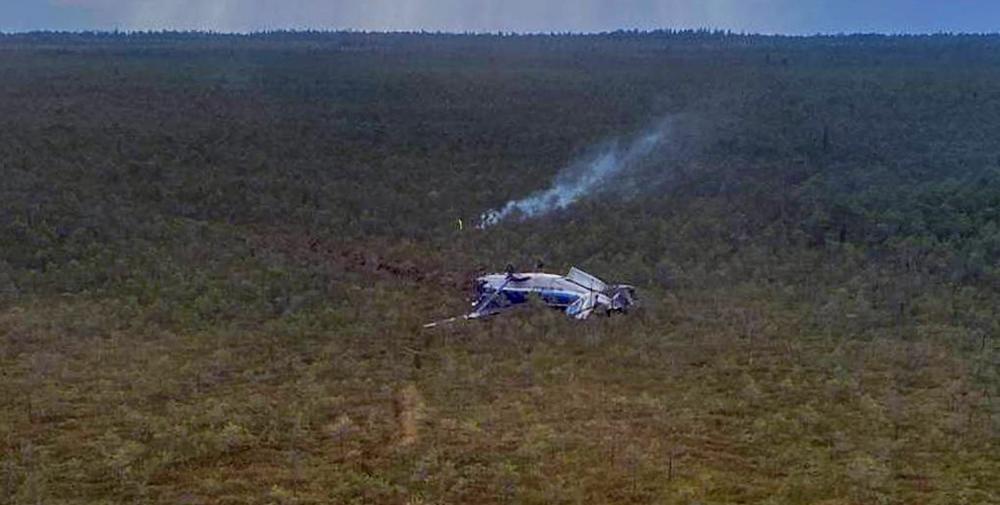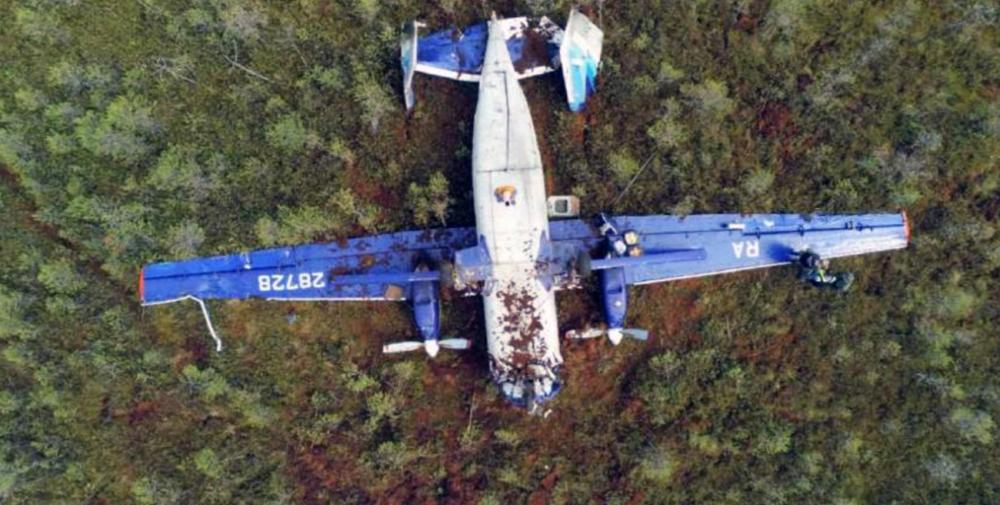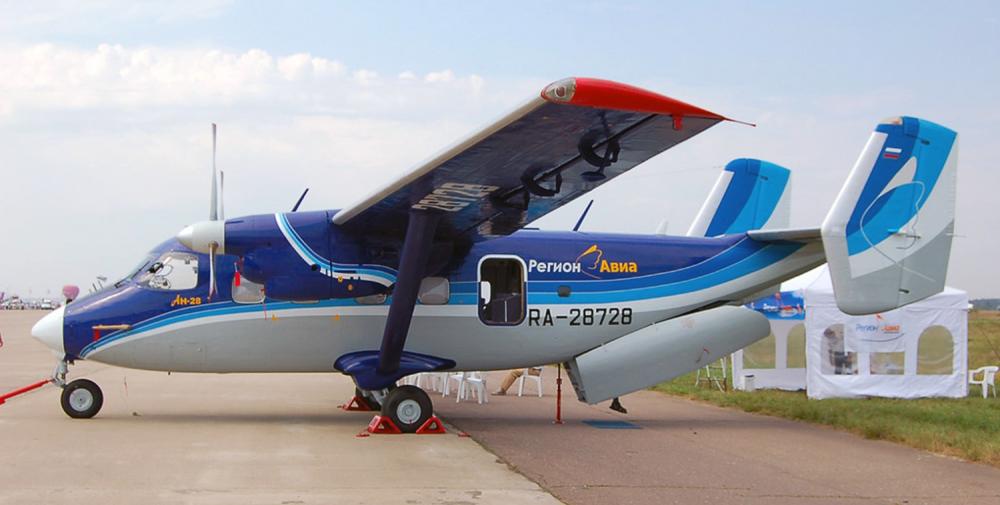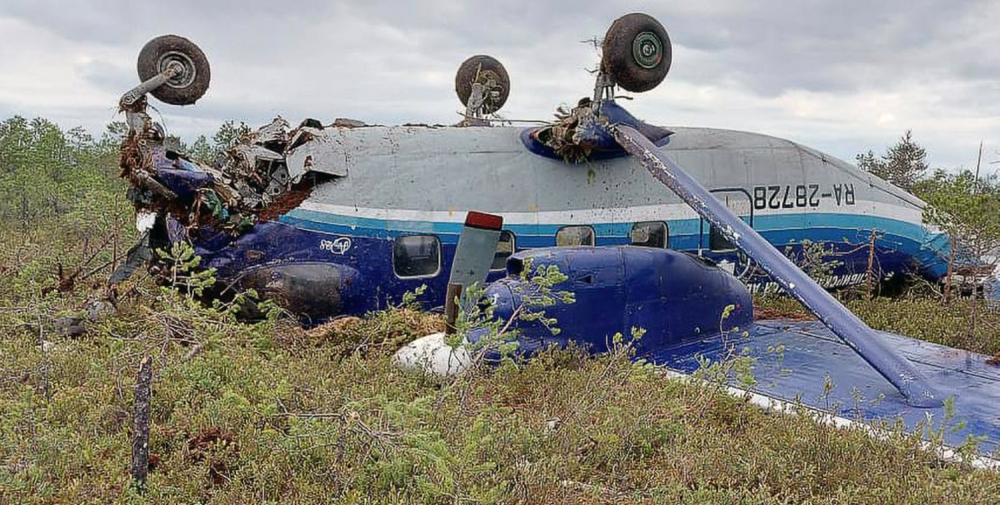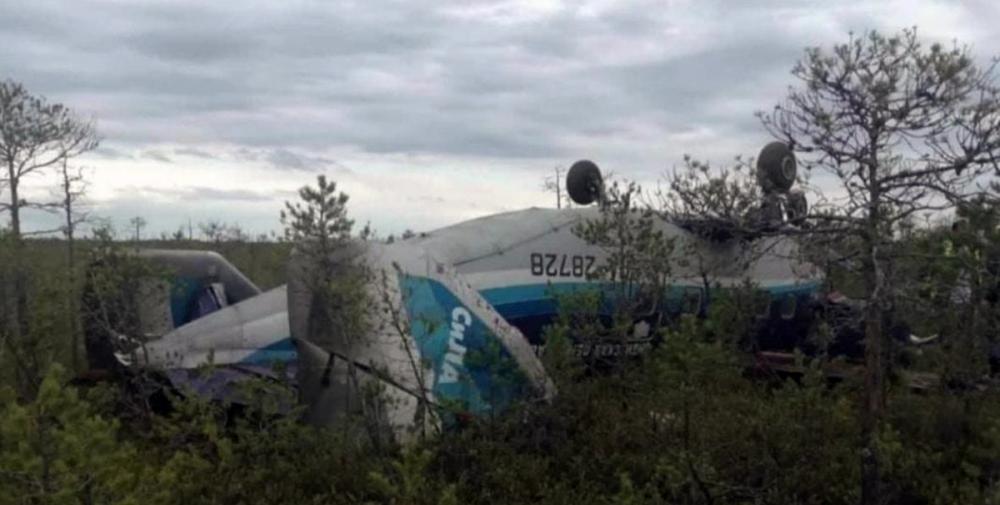Date & Time:
Jul 16, 2021 at 1611 LT
Type of aircraft:
PZL-Mielec AN-28
Registration:
RA-28728
Flight Phase:
Flight
Flight Type:
Scheduled Revenue Flight
Survivors:
Yes
Site:
Plain, Valley
Schedule:
Kedrovy - Tomsk
MSN:
1AJ007-13
YOM:
1989
Flight number:
SL42
Country:
Russia
Region:
Asia
Crew on board:
4
Crew fatalities:
0
Pax on board:
15
Pax fatalities:
0
Other fatalities:
0
Total fatalities:
0
Captain / Total hours on type:
3970
Copilot / Total hours on type:
26
Aircraft flight hours:
8698
Aircraft flight cycles:
5921
Circumstances:
En route from Kedrovy to Tomsk, while cruising at an altitude of 12,000 feet in icing conditions, both engines failed simultaneously. The crew tried to restart both engines, without success. In such conditions, the crew reduced his altitude and attempted an emergency landing in the taiga. Upon impact, the flipped over and came to rest upside down. The wreckage was found around 1430LT some 52 km southeast of Kedrovy. All 17 occupants were found alive, among them few were injured. The captain broke one of his leg. The aircraft was damaged beyond repair.
Probable cause:
The accident of the An-28 aircraft, registration RA-28728, occurred during a forced landing on an improvised landing site due to the simultaneous shutdown of both engines while in flight. The need for this landing was triggered by the engines' spontaneous shutdown. The shutdown occurred while the aircraft was flying in icing conditions with the Pitot-Static System (POSS) turned off due to ice ingestion into its air intake.
The aviation incident was most likely influenced by the following factors:
- The crew's failure to follow the Aircraft Flight Manual (AFM) procedures for manually activating the POSS when meteorological conditions favored icing;
- Violation of the crew's duty and rest time regulations, which could have led to the accumulation of operational fatigue and contributed to missing the operation to activate the POSS;
- The crew's failure to make the decision to cease further performance of their duties due to the accumulation of operational fatigue in the absence of the airline's established procedures for exercising this crew right, which does not comply with the provisions of the Russian Ministry of Transport Order No. 139 dated November 21, 2005, "On Approval of the Regulation on Features of the Work and Rest Time Regime for Crew Members of Civil Aviation Aircraft in the Russian Federation";
- Increased hypoxia stress when flying at altitudes exceeding 3000 meters without the additional use of oxygen, which is a violation of the regulations of FAP-128, AFM, and the airline's internal regulations, and could have exacerbated the negative effects of operational fatigue;
- A malfunction in the ice detection sensor DSL-40T, which prevented the issuance of ice detection alerts and the automatic activation of the POSS.
The aviation incident was most likely influenced by the following factors:
- The crew's failure to follow the Aircraft Flight Manual (AFM) procedures for manually activating the POSS when meteorological conditions favored icing;
- Violation of the crew's duty and rest time regulations, which could have led to the accumulation of operational fatigue and contributed to missing the operation to activate the POSS;
- The crew's failure to make the decision to cease further performance of their duties due to the accumulation of operational fatigue in the absence of the airline's established procedures for exercising this crew right, which does not comply with the provisions of the Russian Ministry of Transport Order No. 139 dated November 21, 2005, "On Approval of the Regulation on Features of the Work and Rest Time Regime for Crew Members of Civil Aviation Aircraft in the Russian Federation";
- Increased hypoxia stress when flying at altitudes exceeding 3000 meters without the additional use of oxygen, which is a violation of the regulations of FAP-128, AFM, and the airline's internal regulations, and could have exacerbated the negative effects of operational fatigue;
- A malfunction in the ice detection sensor DSL-40T, which prevented the issuance of ice detection alerts and the automatic activation of the POSS.
Final Report:
RA-28728.pdf3.56 MB
